Piecing together the story of Edinburgh's underground vaults
14th Sep 2023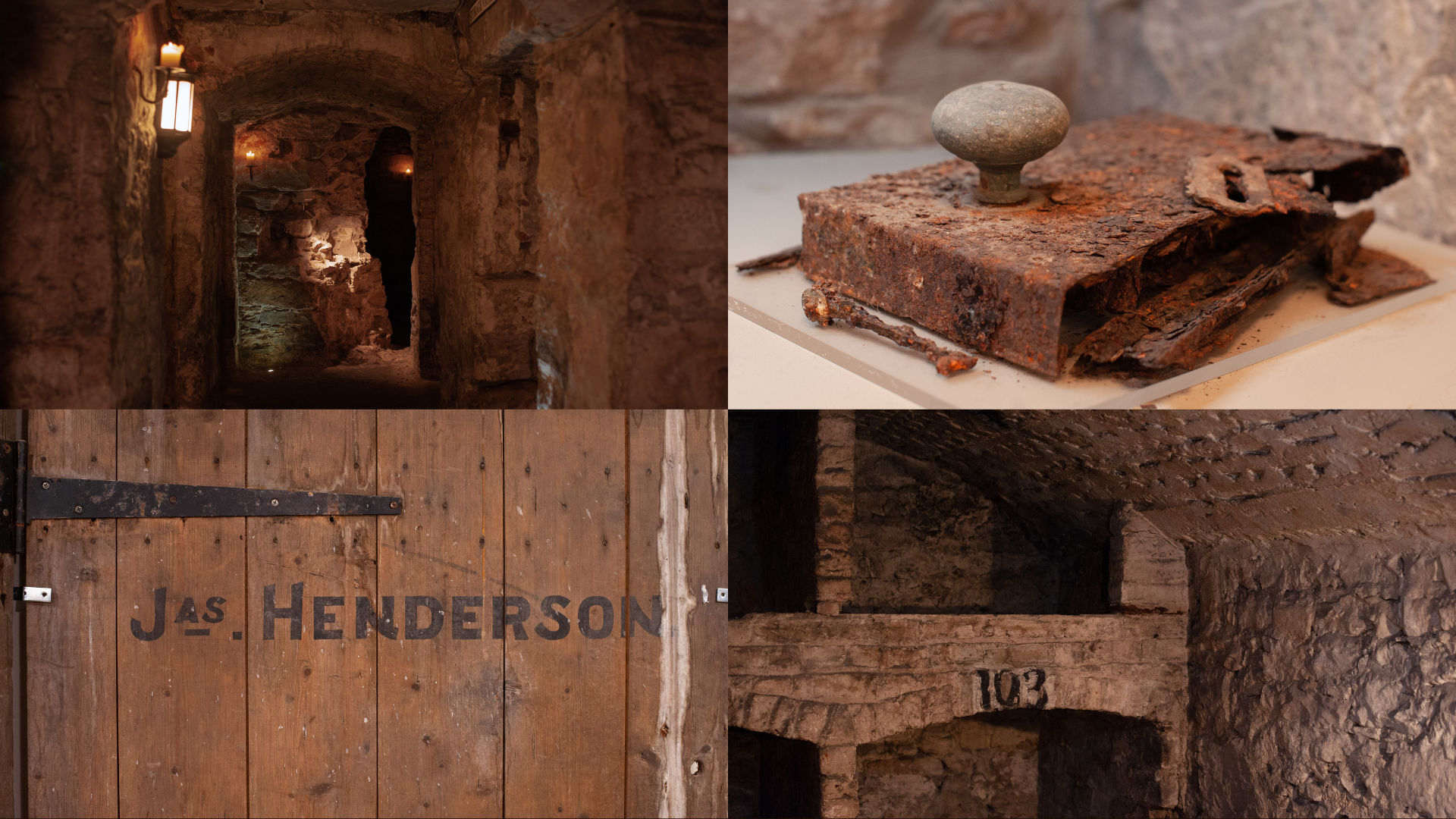
Descend into the secrets of the city’s past on an Edinburgh history tour of the Blair Street Underground Vaults.
Artefacts from Edinburgh’s underground vaults fit together like pieces of a puzzle. But they’re not always perfect puzzle pieces—sometimes we have to act like palaeontologists making one full dinosaur skeleton out of many partial skeletons: a room of the vaults might be reconstructed with the help of artefacts from many rooms.

Edinburgh's vaults
The South Bridge Vaults, which are now split into different sections, were completed along with the South Bridge in the late 1780s. The vaults encompass the space beneath this bridge, used for workshops, storage areas, and other less savoury endeavours during their time. Due to poor conditions, they were abandoned and eventually largely forgotten. But their archives and artefacts are still here to be studied.
When you visit us on tour in the Blair Street Underground Vaults, you’ll see objects like a door, a vault, a lock, and a plaque. Separately, they may only tell us bits and pieces of a story. But together, they start to reveal the full narrative.
Let’s start with a door. Specifically, this door:
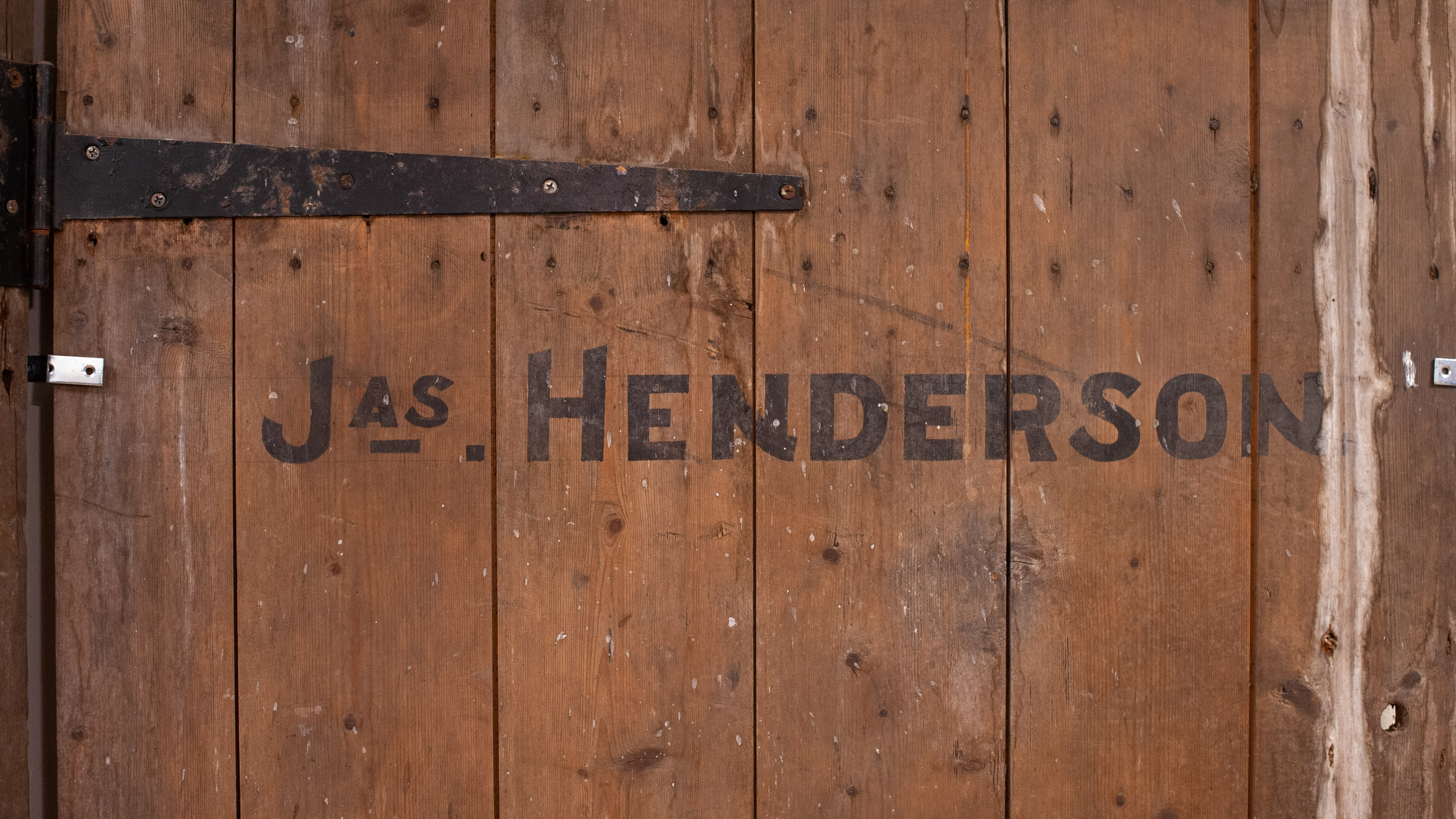
It hangs in our reception, saying a final goodbye to visitors as they leave their tours. The door is evidently old, stained from water damage and rotted at the bottom. In dark, blocky letters, it reads Jas. Henderson.
Who is this Jas. Henderson? Your mind might jump to names like Jasper or Jason, but Jas. is a common diminutive of the names Jasmine and James. There’s one quick (though maybe not overly exciting) way to determine which name it might be. To the archives!
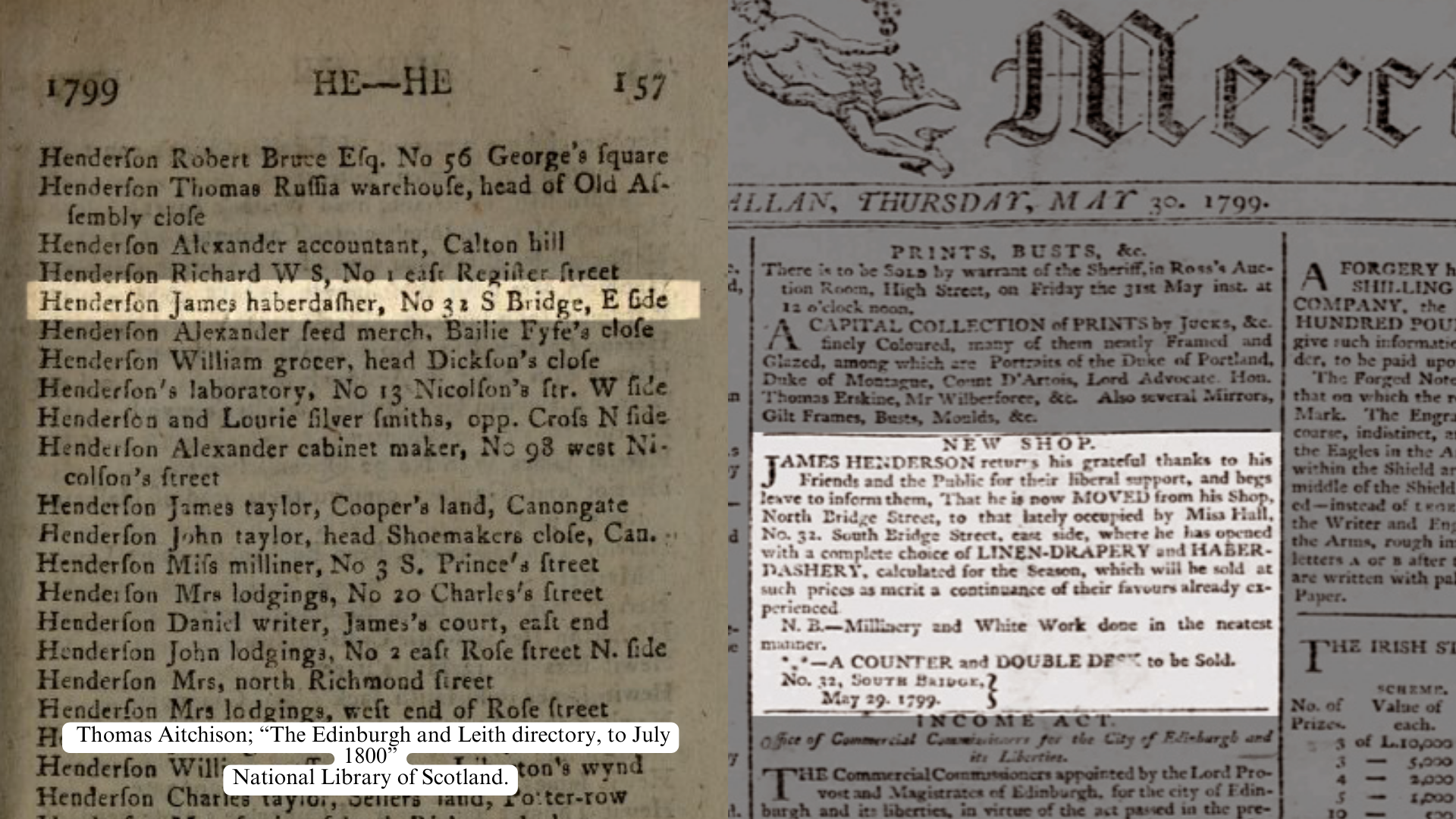
Here, on page 157 of a 1799 Edinburgh and Leith Directory (left), we find a Henderson James haberdasher, No 32 S. Bridge. E. side. 32 South Bridge: located nearly directly above the Blair Street Underground Vaults. It makes sense that we would find his door: with a shop up on the bridge, he’d be using the underground vault space as storage for his goods. The Caledonian Mercury (right) even tells us that James Henderson moved his linen drapery and haberdashery business from North Bridge to South Bridge in late May 1799.
Was this the front door to his shop?
Likely, no! Let’s head down into the vaults now. Once underground, you’ll be faced with corridors like this, lit by candles and always permeated by a dampness that refuses to leave. Archways lead into different rooms along the hallway.
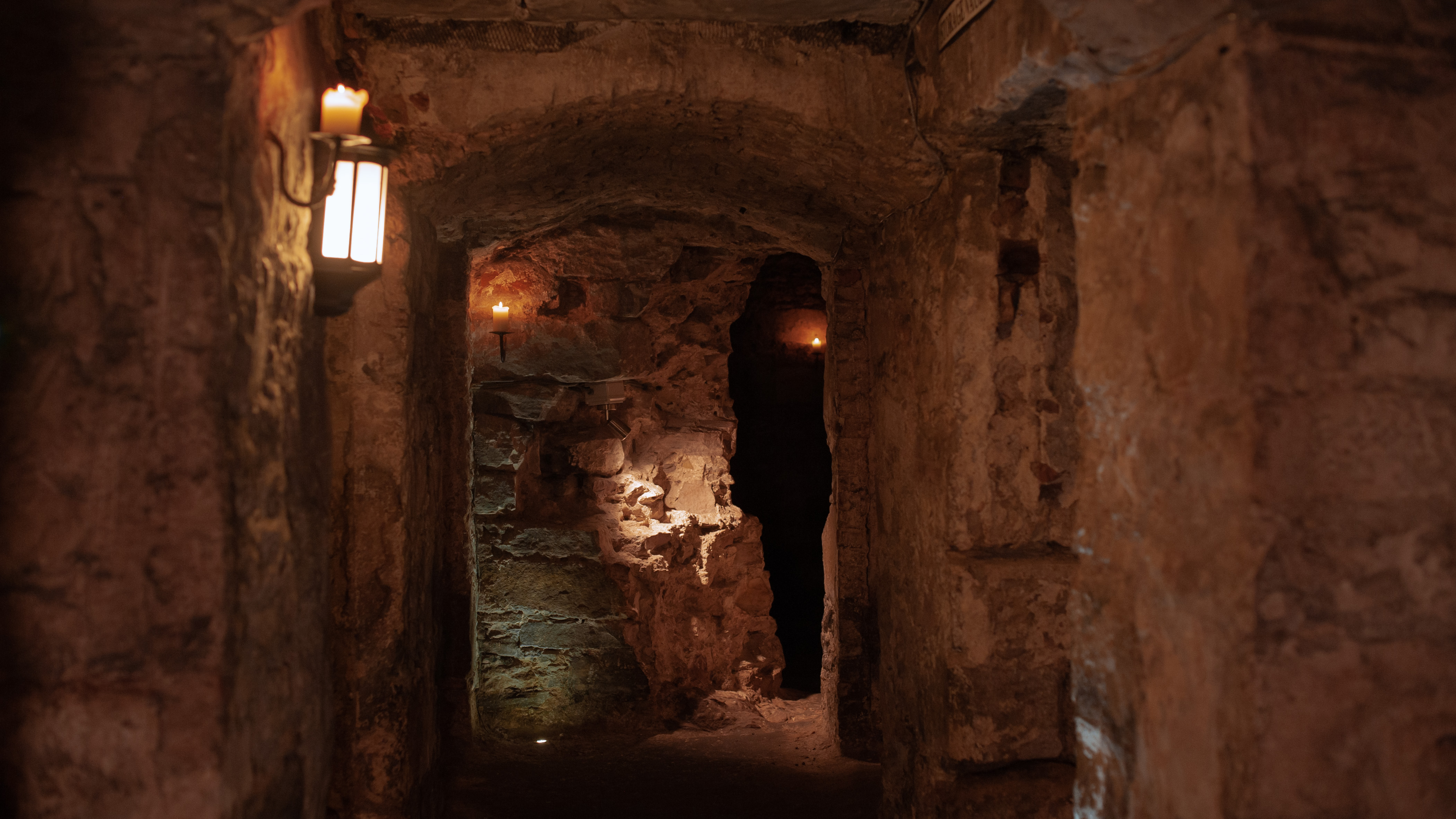
These days, the separate rooms are open to the corridors. But once, 250 years ago, they would have been hidden away behind doors like James Henderson’s, allowing shop owners to securely store their goods. Extra security would have come in the form of a solid lock, like this one that was removed from the vaults.
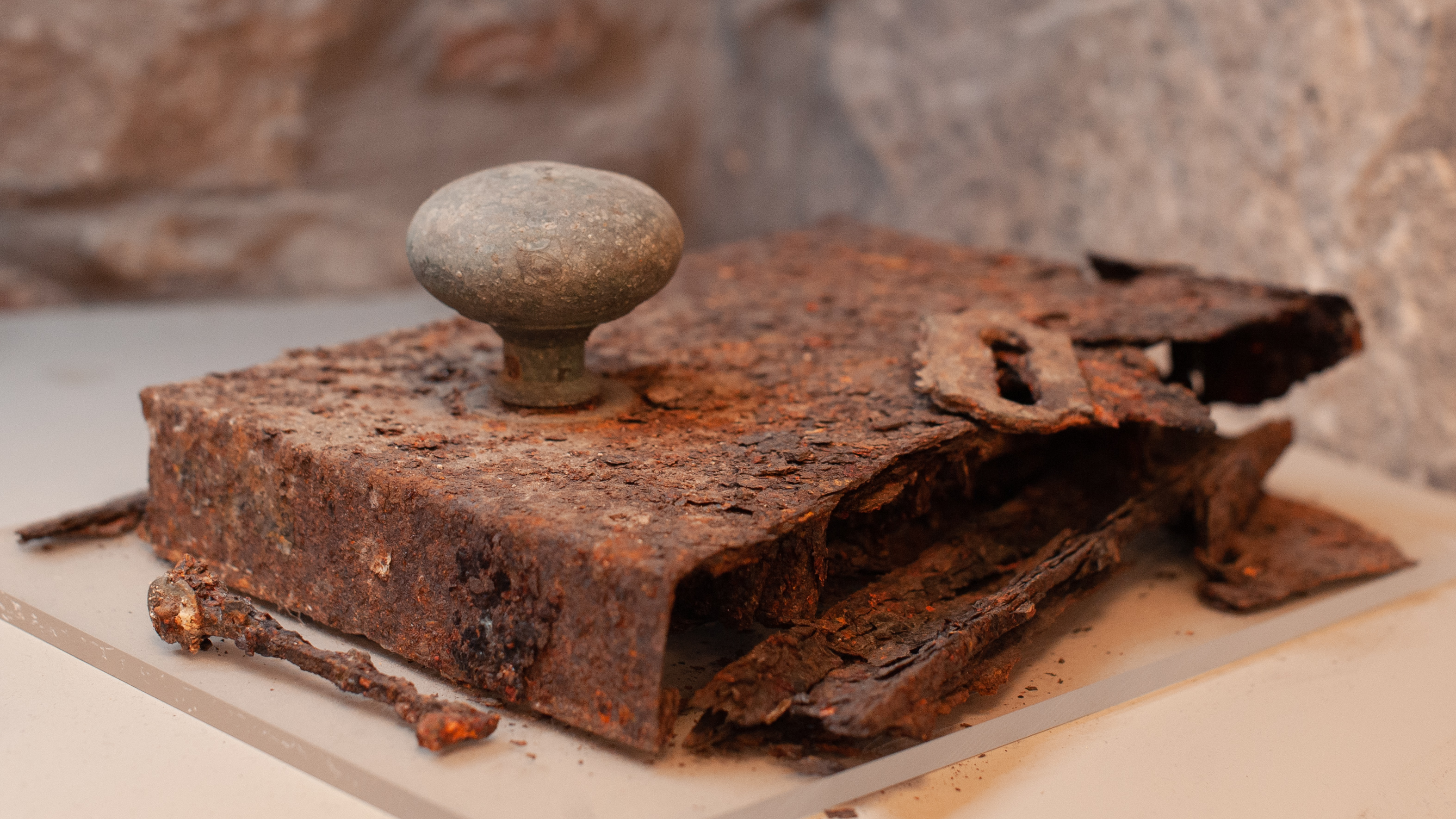
This lock doesn’t look like it’d do much to keep someone out—that’s what 200 years in damp conditions will do to you. But, in the 18th century, it would’ve been far more reliable. Inside the storage room, each vault could be labelled with a plaque to make it easy to remember where everything was stored.
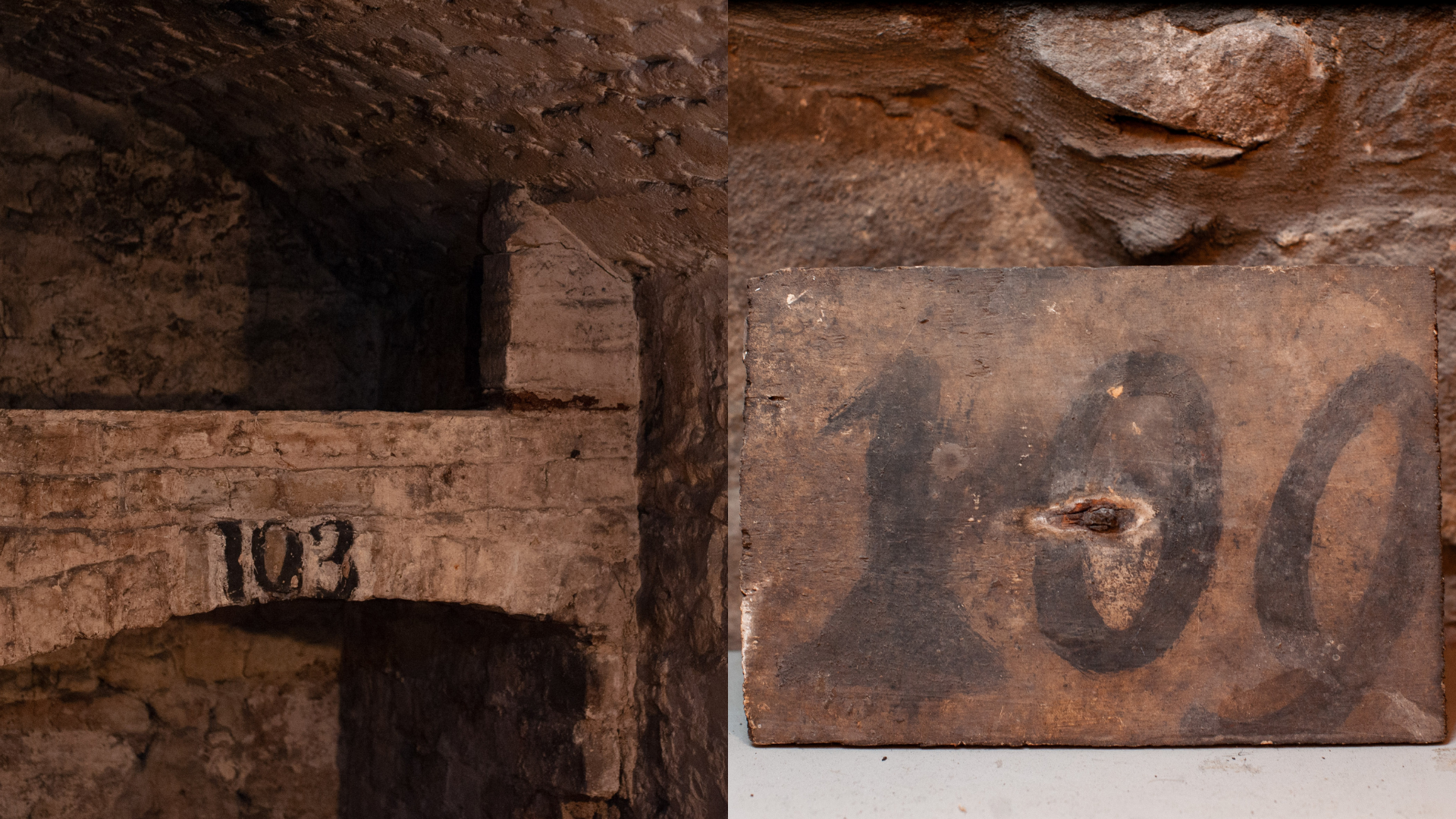
Pieces from different puzzles
From the archives, we know that a James Henderson had a haberdashery business in this area at the end of the 18th century. His storage vaults would have looked like the ones above, but we’re not sure exactly which ones were his. His goods would have been labelled by a plaque like the one shown, enclosed by a door with his name on it, and secured with a lock like the one we found down there.
The artefacts pictured here may not have all belonged to James Henderson himself—this specific lock may not have been used on this specific door, which may not have held vaults labelled with this specific plaque—but through piecing them together we can see just what it was like in the Blair Street Underground Vaults for James Henderson.
Sometimes, artefacts act more like pieces from different puzzles that fit together remarkably well to create a full picture of life in the vaults.
Become an archaeologist
Want to see Edinburgh’s darkest secrets for yourself? Descend into the Blair Street Underground Vaults on an Edinburgh history tour and uncover their dark past.

